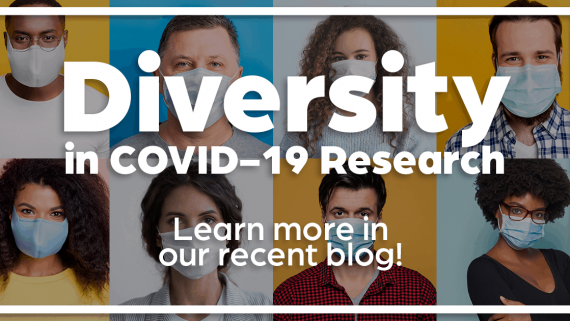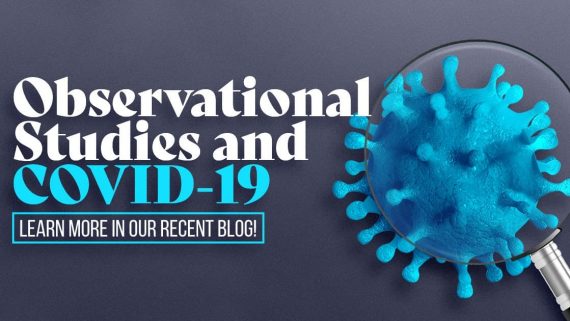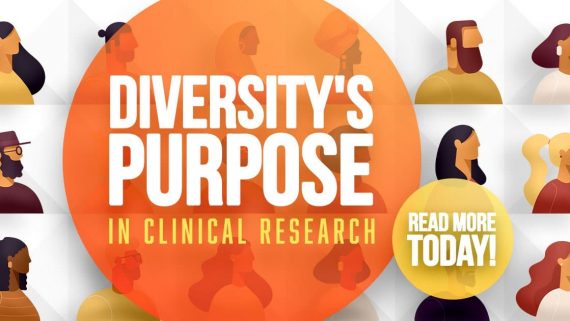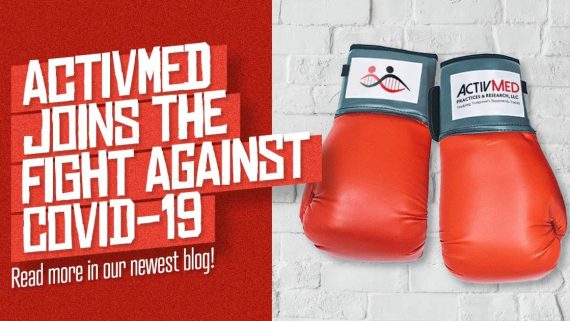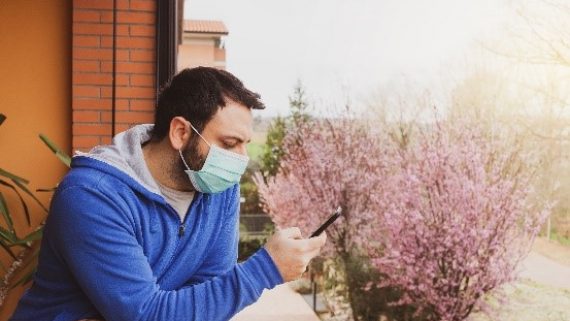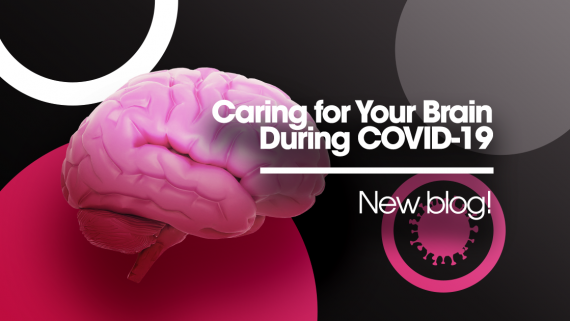As we pass the first anniversary of the first reported case of COVID-19 in the U.S., a lot of uncertainty remains despite the tremendous progress. Diversity has been a challenge long before the coronavirus, and it’s vital to end the disproportionate impact in communities of color. As clinical research efforts continue to deliver new ways to detect, prevent, and treat COVID-19, study participants’ diversity will be more critical than ever.

Importance of Diversity in Research
Genetics and biological makeup differ for every person. For vaccines, this means how antibodies are produced in one ethnic group can vary from others. Since the pandemic began, data gathered shows much higher rates of infection, hospitalization, and death in people of color.
Diversity also covers various age groups, gender, and backgrounds. Older individuals and those with underlying health conditions are more likely to suffer severe symptoms, hospitalizations, and death as well. The populations with the most significant risk stand to benefit the most from the new possibilities being developed for COVID-19. At the same time, they need to be tested in these groups to ensure they are safe and effective for everyone.
Disparity Causes
Historical mistreatment of minority populations in research studies fuels mistrust and prevents some from participating. Though safeguards, ethical laws, and oversight by the FDA have made research studies much safer, the past is still fresh in minds. Others feel they lack the tools to make it to appointments due to lack of transportation, inability to leave work early, childcare needs, and so on. The reality is that many studies offer options to help with those challenges, such as reimbursement for time and travel, transportation help, and extended hours.
By talking with the study office, you can learn more about the study, potential risks, and possible benefits. The commitment for each study varies. A vaccine study may last two years, while an antibody study may be one visit for example. While there are criteria for each that must be met, flexibility of choice is always a bonus. Volunteering in clinical research studies is 100% voluntary throughout the entire process. You can end your commitment at any time in the event you cannot continue.

ActivMed Practices & Research is proud to be a part of history in the fight to end COVID-19. Our site participated in the large AstraZeneca vaccine study, as well as other antibody test studies. Get further details about enrolling COVID-19 studies here.
Without the selfless gift our volunteers offer, the progress made thus far wouldn’t be possible. To learn more about volunteering or view a current list of enrolling studies at each of our sites, visit our website.
References:
https://hub.jhu.edu/2020/11/30/diversity-covid-19-vaccine-trials/
https://www.henryford.com/blog/2020/11/diversity-in-vaccine-trials
Clinical research studies can be broken down into two categories. Interventional and Observational studies. Interventional studies are where a medication or device intervenes to prevent or treat a disease. Observational studies typically do not involve an intervention, although on occasion they may involve interventions that are a part of routine care, rather than assigned by the investigator. In a world fighting back against COVID-19, observational studies are being done to see if just a few drops of blood from a finger stick can be used to detect if an individual has antibodies to COVID-19, potentially making testing more available and safer during the pandemic.
Observational Studies
Observational studies are where researchers observe the effect of a risk factor, diagnostic test, treatment, or other intervention. Two common types are cohort and case control. A cohort is any group of people linked in some way, such as an age group, for example. Case-control studies identify people with a pre-existing health problem (cases) and a similar group without the problem (controls) and then compare them.

For COVID-19, observational studies help us learn more about the virus. In turn, this information is used to find better ways to detect, treat, and prevent COVID. Observational studies are a benefit not just to individuals affected by these conditions but also to society.
Finger Stick and COVID-19
Testing for the virus seems to have come full circle, from long lines at a few places to drive through sites and emailed results. While we’ve come a long way, there is still a need to diagnose COVID-19 quicker and safer. Finger stick testing is a blood test done by pricking your finger and collecting a few drops of blood. It is similar to what people with diabetes use to test their blood sugar levels.

Finger stick testing is also being evaluated to determine if an individual has COVID-19 antibodies as an observational study. ActivMed Practices & Research has joined the fight against COVID-19 and has participated in an observational study and a vaccine study for this virus. To learn more about how you can get involved, contact us for more information at (603) 319-8863, or visit our enrolling studies page.
References:
https://www.iwh.on.ca/what-researchers-mean-by/observational-vs-experimental-studies
When it comes to improving how we detect, manage, and prevent a medical condition, discovering new options is only the beginning. Before it can be made available to the public, each must be thoroughly tested on humans in studies called clinical trials. The diversity in the volunteers who participate plays a vital role in clinical research we can’t afford to do without.
Diversity is More than Race

Diversity means more than a racial or ethnic background. While this is part of it, age, gender, demographics, and lifestyles are others. Why are these things important? Because potentially new drugs, devices, and therapeutic approaches should be studied in the population of people they are meant to help. For example, being over 45 and in specific ethnic groups are some of the factors that increase your risk of developing diabetes.
We could relate these to traditional cuisines or another related cultural custom. We have some answers, but there is still more to learn before an exact cause is found. Diversity makes treatments safer and more effective for everyone.
Diversity’s Role in COVID-19 Vaccine Studies
There are many different types of research studies. Vaccines come to mind as we continue the fight against COVID-19 and marvel as the first vaccines doses are administered. It won’t be available to everyone at first, though. Healthcare workers, older adults (65 and up) and those at higher risk of developing more severe symptoms are among the first groups slated for vaccination. Pre-existing health conditions can put adults of any age at increased risk. Some examples are:
- Cancer
- Chronic kidney disease
- COPD (chronic obstructive pulmonary disease)
- Heart conditions, such as heart failure, coronary artery disease, or cardiomyopathies
- Immunocompromised state (weakened immune system) from solid organ transplant
- Sickle cell disease
- Smoking
- Type 2 diabetes mellitus
- Obesity
COVID-19 Vaccine Studies at ActivMed Practices & Research
There are over 400,000 registry participants in coronavirus related research studies. 19% represent ages 65-74, and 4% are over 75. In a virus where 80% of related deaths are age 65 and older, the numbers are concerning. Regardless of age, volunteering in clinical research allows you an opportunity to ensure the safest and most effective treatments for future generations.

To learn more about the COVID-19 vaccine studies currently enrolling here at ActivMed Practices & Research, contact our Portsmouth, NH location at (603) 319-8863, or visit our website.
References:
https://www.aarp.org/health/conditions-treatments/info-2020/range-of-subjects-in-vaccine-trials.html
Earlier this month, ActivMed announced it is now joining this Phase III study for a potential vaccine against COVID-19. There are currently no available vaccines in the U.S., and safe and effective ones would have a significant public health impact. Further testing is needed through clinical research studies, but every day we edge closer to FDA approval and availability to the public. In the meantime, we must be diligent about following the CDCs’ recommendations for protecting ourselves. November is also National Healthy Skin Month, and nothing goes better with COVID-19 prevention measures than good hygiene.
National Healthy Skin Month
November is National Healthy Skin Month, and it’s fitting the body’s largest organ, the skin, gets some well-deserved attention. Your skin plays a vital role in your overall health by acting as a protective barrier against harmful things in the environment and keeps moisture in. It helps us feel different sensations and protects us from the heat and cold.

To keep your skin functioning as it should, you need to take care of it. Practice good hygiene by cleaning it regularly, wash hands before eating and after being in public, and see a dermatologist if any skin issues persist. Moisturize daily, protect your skin from the sun with sunscreen while outside, and hydrate throughout every day. View more tips from AAD here.
COVID-19 Vaccine- What You Need to Know
While the news of Pfizer and Moderna’s vaccine effectiveness is promising, there are still steps we need to take before the entire public has access to a safe and effective vaccine. Also, these two aren’t the only vaccines in development and testing. Furthermore, additional time is needed to understand the long-term immunity and effects.

There are currently 236 vaccines in development, and around 40 are being tested in clinical research studies. Typically, vaccines take years to develop and test. However, thanks to programs like Operation Warp Speed and FDA fast-tracking, COVID-19 vaccines and treatments get priority and move quickly through the process. Developers in the later stages of research can apply for emergency authorization use, which would make them available sooner if approved by the FDA.
Even if granted, until the vaccines’ manufacturing ramps up, they will be released in smaller quantities, giving vulnerable populations like the elderly or those at high risk of severe complications from COVID priority. Those that remain would see availability open a few months later.
Join the Fight with ActivMed
“Our team at ActivMed looks forward to helping bring a vaccine against COVID-19 and a hopeful end to the pandemic. We hope you will help as we are looking for trial participants. We are trying to provide as safe an environment as possible. We are following CDC recommendations for participant safety. It is through this collaboration that we will be able to conduct this monumental endeavor. Looking forward to seeing you in our Portsmouth, N.H. site!”- Principal Investigator Michael J. McCartney, M.D. and Chief Medical Director at ActivMed.

Are you ready to join the fight against COVID-19? Get started today by visiting our website to learn more about the COVID-19 studies enrolling at our Portsmouth, NH location.
References:
We are excited to announce that we are NOW ENROLLING for a new COVID-19 Observational Study!

This study is for people who have had a COVID-19 test, regardless of the result, to evaluate the accuracy of an investigational antibody test.
As it is an observational study, it only requires ONE VISIT to our clinic.
To learn more about this study, please call
978-655-7155.
Stress is a way of life these days, it seems. COVID-19 has effectively changed the way we live our lives, at least for the foreseeable future. Most of us know that stress is not good for the body, but do you know how it impacts our health? Prolonged exposure to stress changes the way our brains function. To dive deeper, it reverts to its primitive functions that help us sense and respond to danger. We become faster at solving quick issues but lose the ability to plan or deal effectively with complex problems. Stress doesn’t have to run your life. With a little basic care and healthful changes, you too can embrace the stress.

Stress Relief Tips
There is so much that is beyond our control, and the truth is that stress is ever-present. Fortunately, there are things you can learn to help manage how you react to stress and help you relax your brain.
- Meditation– Meditation can help relax your mind, and help you become less reactive to stress triggers.
- Restructure Stress Response– Cognitive restructuring is a technique that changes the habitual thinking patterns that trigger your stress response.
- Stress Management– Learning more about stress, stress management, and what triggers your stress response will help you feel more confident to handle what life throws at you.
- Confide in Someone You Trust– Talk things out with a trusted loved one instead of staying in your thoughts. Surround yourself with those who will help you identify you are stressed, and when to take action.
Brain Exercises
Taking care of your brain is important at any age. Engaging in regular brain exercises helps improve memory and focus so you can keep up with daily life. In our later years, brain changes begin to affect memory, and these activities become more and more important. Jigsaw puzzles, dancing, learning a new skill, and meditation are some ways you can challenge your mind.
June is Alzheimer’s and Brain Awareness Month. The program’s focus is on providing brain health education, resources, and tools for Alzheimer’s and other forms of dementia. One of the ways they do this is by helping to raise money for the vital research needed to detect, treat, and eventually cure these conditions through clinical research studies.

ActivMed Practices & Research can help you take charge of your brain health. You can get involved by participating in one of the Alzheimer’s research studies at our Methuen location or take advantage of our telehealth memory screens. To learn more about our free telehealth memory screens, call the Methuen office at (978) 655-7155 or by click here.
References:
https://www.sciencenews.org/article/coronavirus-covid19-stress-brain
https://www.verywellmind.com/how-to-relax-your-mind-3144475
https://www.healthline.com/health/mental-health/brain-exercises#focus
If you have survived a stroke or heart attack, your chances of having another one are 1 in 4. The good news is, up to 80% can be prevented through managing chronic conditions, and lifestyle modifications. May is American Stroke Month, and the 2020 initiative is “One is Enough” which focuses on preventing another stroke. Not all risk factors are within your control, but for the ones we can control, it is time to make changes, even in the midst of COVID-19.
Chronic Conditions and Stroke Risk

A stroke happens when a clot or rupture blocks blood vessels that carry oxygen and nutrients to the brain. This disruption in the flow of these vital nutrients results in the death of brain cells. Depending on the severity of the stroke, and where it occurs in the brain, the resulting damage can vary. Stroke sufferers can have paralysis, speech or language problems, memory loss, and changes in behavior.
Several risk factors increase your risk of stroke. Family history, age, and gender are factors that no one can change. However, managing chronic conditions such as heart disease and diabetes play a vital role in prevention and reoccurrence. Diabetes and heart disease impairs your body’s ability to effectively transport oxygen and the critical nutrients we mentioned earlier to your brain. By working with your doctor and following their plan to manage these conditions, you can reduce your risk of stroke. Eating a healthy diet, staying active at least 150 minutes a week, and living tobacco-free are some of the lifestyle recommendations the American Stroke Association suggests in addition to the management of chronic conditions.
Hidden Dangers of Stress and the Pandemic
The COVID-19 pandemic has taken the world by storm, changing life as we knew it. In addition to fears of contracting the virus, many lost their jobs and businesses, creating a financial and emotional strain few have seen before. During these unprecedented times, stress levels have understandably risen. However, continued stress over long periods can increase your risk of developing certain heart diseases such as high blood pressure if not managed. High blood pressure is the number 1 controllable risk factor for stroke.
Know the Signs
The American Stroke Association uses the acronym “FAST” to help recognize the symptoms of a stroke to get immediate medical attention. It may mean the difference between recovery and disability, so knowing the signs is vital:
- F (Face Drooping)- Does one side of the face droop, or is it numb? Ask the person to smile. Is the person’s smile uneven or lopsided?
- A (Arm Weakness)- Is one arm weak or numb? Ask the person to raise both arms. Does one arm drift downward?
- S (Speech)- Is speech slurred? Is the person unable to speak or hard to understand? Ask the person to repeat a simple sentence.
- T (Time to call 9-1-1)- If the person shows any of these symptoms, even if the symptoms go away, call 9-1-1 and get them to the hospital immediately.

ActivMed offers free health screenings for blood glucose, blood pressure, and more. To learn more, visit our website here.
During COVID-19, ActivMed Practices and Research is committed to ensuring the safety of our patients and staff. Click here for our latest COVID-19 facility updates.
References:
https://www.stroke.org/en/life-after-stroke/preventing-another-stroke

